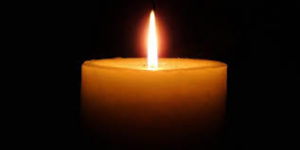 I met Nick Clark in one of the many Torah study groups that convene in synagogues on Shabbat morning before the prayer service. Those who have been to more than one, would attest that no group is like any other, yet they are similar because they all read and comment on the weekly portion, known in Hebrew as Parashah.
I met Nick Clark in one of the many Torah study groups that convene in synagogues on Shabbat morning before the prayer service. Those who have been to more than one, would attest that no group is like any other, yet they are similar because they all read and comment on the weekly portion, known in Hebrew as Parashah.
While groups have different styles, they all use a mixture of the Torah text and the vast commentary that engages with the text. Over the centuries rabbinic commentaries on Torah have been building on each other offering arguments, debates, illuminations, and new insights.
This style of Torah commentary of “give and take,” called in Aramaic Shakla Vetraya, has been democratized in the last two centuries; it has moved commentary from the domain of scholarly elites to anyone who nowadays wants to study. The rabbinic tradition of give and take has been instructive in that it never shied away from controversy; it has forged a legacy of study that fits well with contemporary social ideas that recognize the right of every person in the group to have a voice, an opinion, a point of view. Accordingly, Torah study groups are stimulating and not without controversies.
Studying Torah every week with the same group of people creates a bond, a tight relationships between the participants. Each person in the study group brings her/his signature DNA of commentary, a fundamental and distinctive characteristic that marks them in the weekly discussions.
What struck me about our friend Nick Clark was his understanding of God. When we at a Temple B’rith Kodesh study group would encounter difficult passages in Torah, a harsh divine decree that offended contemporary sensibilities, Nick would say, “God is on a learning Curve.” He would explain, “God has to adjust because we constantly present God with new challenges. We are not the same people who came out of Egypt, nor the farmers we were in the land of Israel.” He would express what to the more traditionalists in the group would sound a profound challenge to the idea of God’s unalterable/immutable perfection.
Nick loved Torah study and in the last few years of his life when illness made everything so much harder, he would make tremendous effort to come and share and think and comment and be in community.
A year ago, in his last published commentary on The Jewish Pluralist Nick wrote,
“For me, having survived both bacterial meningitis and cancer in the course of the last three years, this is the eyes-wide-open moment, the realization that I am not alone. More people than I ever knew actually have been familiar with me. Many of these people actually know me. And, most important, that I am loved.
This realization – rather, these realizations – give me strength. They have and still give me the courage to proceed in my battle for health and personal fulfillment.
But, for me these realizations are more than the internalizations of facts.
Behind each realization stands a real person… A person whose name and actions I know.

As I wade into the River Jordan, toward the Promised Land, this is the message I take and carry with me from Moses.”
Nick died peacefully on August 30. In the Hassidic tradition of standing before God in the afterlife, whatever Nick would say to God, it would be uttered with the courage he brought to the study of Torah and the compassion he extended to all of us.
May his memory be of blessing.